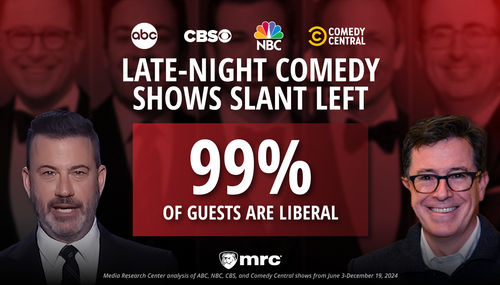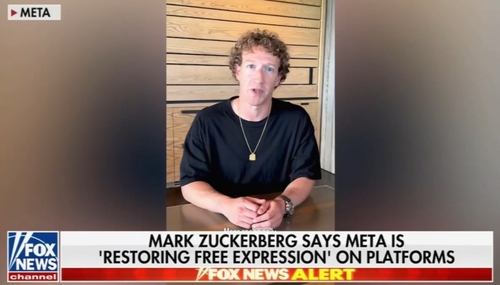Filling in for host Andrea Mitchell during MSNBC’s 12 p.m. ET hour, anchor Kate Snow freely admitted that her report attacking a new Republican voter I.D. in Texas was orchestrated by the Democratic Party: “A Republican-led legislature here passed a new voter I.D. law five years ago....The Democratic Party here has been worried about what those requirements might mean for turnout on Tuesday, but they then put us in touch with Cassandra Enoch Brown, who’s been trying to get a new I.D. for her mother.”
In the interview that followed, Snow teed up Brown to blast the law: “Your mother, 86 years old, right?...And needs a voter I.D. card because she doesn't have a driver's license....When you tried to look for where to go and how to do that, walk me through how that process went.” Brown responded: “I initially began with the Texas Department of Health Services and I spoke with several people. On many occasions, the persons with whom I was speaking didn't know what to tell me....And they didn't know what all was involved in getting the I.D. when it came to what she needed.”
Snow turned to Brown’s mother, identified as Miss Thomas: “If you don't get the chance to vote on Tuesday because you don't have the right paperwork?” Thomas replied: “I would be very angry. Because I think it's not fair to the elderly people. You know, we were here before you were born. We should be able to vote.”
Bringing on two liberal pundits to back up the interview arranged by Democrats, Snow set up University of Texas professor Victoria DeFrancesco: “Republicans argued when they passed this thing that it would reduce fraud. Democrats say there isn't any fraud like that, people aren't pretending to be other people to go and vote.”
DeFrancesco tried to spin the law as a “poll tax”:
Yes. So the claim was that this was a solution in search of a problem. On the face of it, the law doesn't seem very problematic because they say, “Hey, if you don't have a driver's license, you can go and get a voter I.D. card.” Okay, that sounds reasonable enough. But the thing is, you need certain documents to get that Voter I.D. card....And the birth certificates are not free. So a birth certificate here in Texas, if Cassandra were to go and get that birth certificate, it would be $22. So in order to vote, if you backtrack it, you’re going to need to pay $22 to get that birth certificate, to get that voter I.D. card. That's essentially a poll tax.
Snow then brought on Texas Monthly executive editor Mimi Swartz, who ranted: “...this was a trumped-up idea by our legislators to keep people from getting to the polls and it's working really well. And it's deeply distressing.”
Here is a transcript of the February 26 segment:
12:36 PM ET
KATE SNOW: Back here at Gueros Taco Bar in Austin, Texas, and there is a new law here in Texas that's worth talking about as we approach Super Tuesday. A Republican-led legislature here passed a new voter I.D. law five years ago and after a big battle through the courts, the law does still stand. It requires all voters to have a photo I.D. in order to vote and only certain forms of photo I.D. are acceptable. The Democratic Party here has been worried about what those requirements might mean for turnout on Tuesday, but they then put us in touch with Cassandra Enoch Brown, who’s been trying to get a new I.D. for her mother. Her mother recently had a stroke, she can no longer drive. She doesn't have a driver's license.
[TO BROWN]: Your mother, 86 years old, right?
CASSANDRA ENOCH BROWN: Has voted ever since I can remember.
SNOW: And needs a voter I.D. card because she doesn't have a driver's license.
BROWN: Correct.
SNOW: When you tried to look for where to go and how to do that, walk me through how that process went.
BROWN: I initially began with the Texas Department of Health Services and I spoke with several people. On many occasions, the persons with whom I was speaking didn't know what to tell me.
SNOW: They didn't know where you should go to get the I.D.?
BROWN: And they didn't know what all was involved in getting the I.D. when it came to what she needed.
SNOW: Miss Thomas, how much do you want to vote in this election?
MISS THOMAS [BROWN’S MOTHER]: I don't want to break my record of voting every year for president.
SNOW: How important is it to you to vote?
THOMAS: I think it's important to me. Everybody should vote, you know?
SNOW: How many times have you voted?
THOMAS: Every time they had an election.
SNOW: If you don't get the chance to vote on Tuesday because you don't have the right paperwork?
THOMAS: I would be very angry. Because I think it's not fair to the elderly people. You know, we were here before you were born. We should be able to vote.
SNOW: And by the way, they both support Hillary Clinton. Joining me now to talk more about this, MSNBC contributor Victoria DeFrancesco is a political analyst and a professor at the University of Texas. She’s here with me in Austin. And Mimi Swartz is executive editor at Texas Monthly. Good to have both of you with us. Victoria, let me start with you on this Texas voter I.D. law. Republicans argued when they passed this thing that it would reduce fraud. Democrats say there isn't any fraud like that, people aren't pretending to be other people to go and vote.
VICTORIA DEFRANCESCO: Yes. So the claim was that this was a solution in search of a problem. On the face of it, the law doesn't seem very problematic because they say, “Hey, if you don't have a driver's license, you can go and get a voter I.D. card.” Okay, that sounds reasonable enough. But the thing is, you need certain documents to get that Voter I.D. card.
SNOW: And that’s what Cassandra was saying, she doesn't even have the birth certificate from her mom, who’s 86. It was I long time ago.
DEFRANCESCO: And the birth certificates are not free. So a birth certificate here in Texas, if Cassandra were to go and get that birth certificate, it would be $22. So in order to vote, if you backtrack it, you’re going to need to pay $22 to get that birth certificate, to get that voter I.D. card. That's essentially a poll tax.
SNOW: Well, Mimi, people have made that argument that it was a poll tax and then last summer, the Circuit Court of Appeals here upheld this law. Are you hearing a lot of stories like the one that we just heard from Cassandra and her mom? Oh, did we lose you?
MIMI SWARTZ: I'm sorry. I couldn't hear you. Did you direct that to me?
SNOW: Oh, no problem. Sure, I was wondering whether you’ve heard other stories like the one that we just heard from Miss Thomas about this voter I.D. law? Are you hearing it as an issue that people are having trouble finding the right I.D. to be able to vote Tuesday?
SWARTZ: Yeah, of course they are. I mean, I think they’ve – you know, again, this was a trumped-up idea by our legislators to keep people from getting to the polls and it's working really well. And it's deeply distressing. I think – I hope that people will still make the effort and come out but I think it's really of a concern.
(...)





